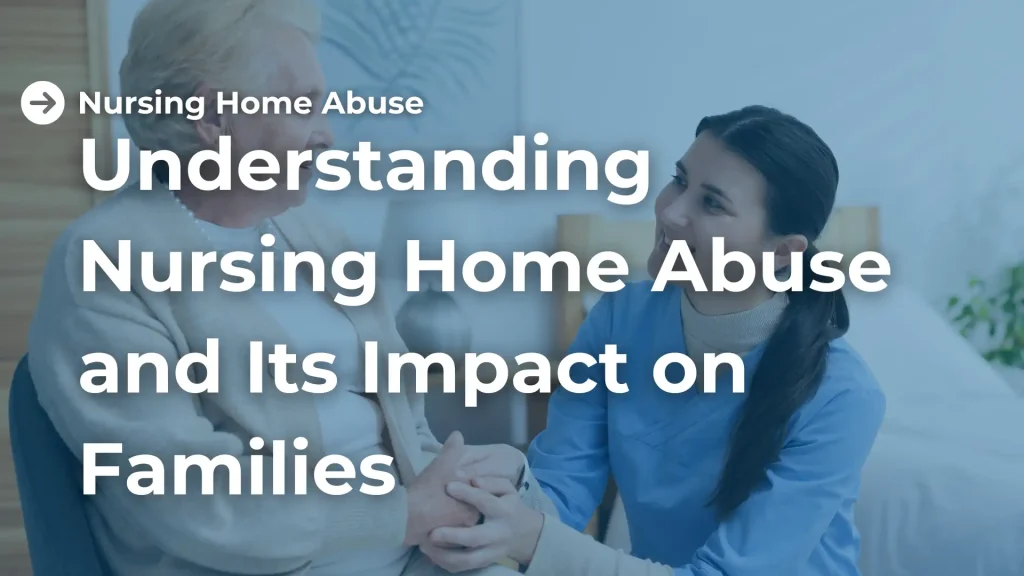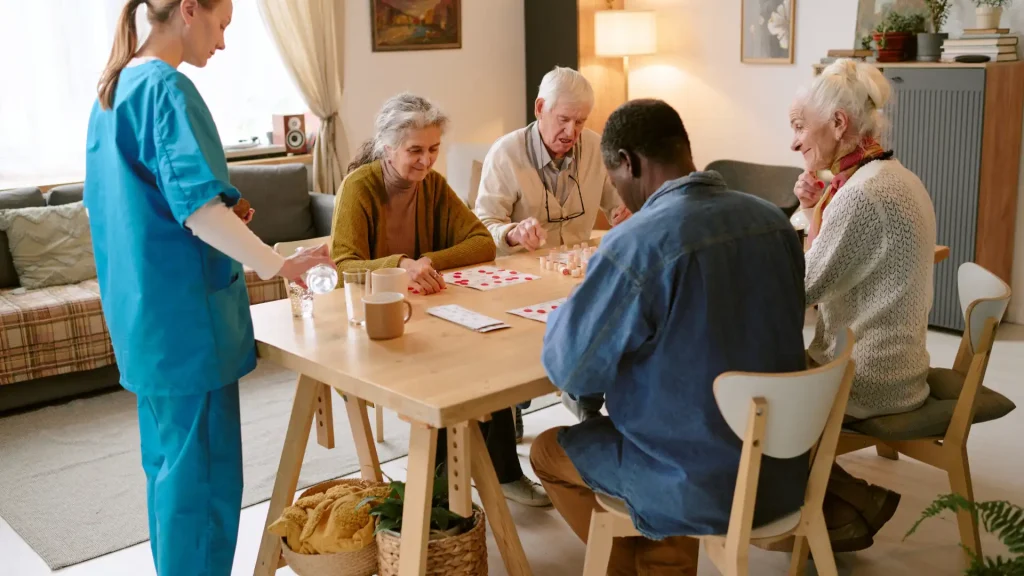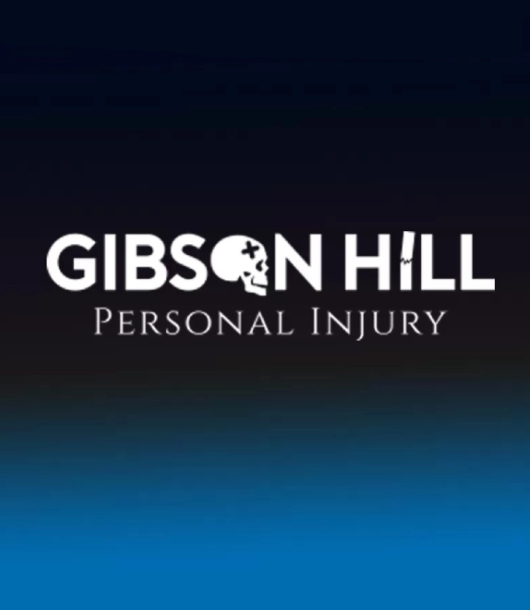
Nursing home abuse affects more than just the resident—it devastates entire families. According to the National Council on Aging, one out of five older Americans experiences abuse each year, many in long-term care facilities. Additionally, approximately 1.3 million people live in approximately 15,600 licensed nursing homes on any given day, according to the National Center for Health Statistics. When a loved one enters a nursing home, families entrust their care to trained professionals. When that trust is broken through abuse or neglect, the consequences ripple through the entire family unit.
Nursing home abuse takes many forms: physical abuse, emotional abuse, sexual abuse, financial exploitation, and neglect of basic care needs. Each type carries distinct consequences for residents and their families. Understanding these forms of abuse helps families recognize warning signs and take action to protect their loved ones. If you suspect your loved one is experiencing abuse, contact Gibson Hill Personal Injury for a confidential consultation about your legal options for nursing home abuse.
The impact extends beyond physical injuries. Families experience emotional trauma, guilt, financial strain, and the burden of seeking justice while caring for an injured or traumatized loved one. This is why legal options, such as filing a personal injury claim, exist to hold facilities accountable and recover compensation for the harm caused. Gibson Hill Personal Injury‘s nursing home abuse attorneys understand the unique challenges families face and provide compassionate, aggressive representation to pursue nursing home abuse settlements.
Physical and Emotional Consequences for Residents
Nursing home abuse produces immediate and long-term harm to residents. Physical injuries include unexplained bruises, fractures, bedsores, malnutrition, and dehydration. These injuries often indicate neglect or direct abuse by staff members. When residents suffer these injuries due to facility negligence, families may pursue personal injury claims to recover damages for nursing home neglect compensation.
The psychological effects prove equally devastating. Residents subjected to abuse frequently develop depression, anxiety, post-traumatic stress disorder (PTSD), and cognitive decline. Social isolation intensifies these effects as residents withdraw from family and activities they once enjoyed. The combination of physical and emotional trauma accelerates health decline and, in severe cases, leads to premature mortality. Understanding elder abuse consequences helps families recognize the full scope of harm their loved ones have endured.
These consequences create a cascade of problems for families. Watching a loved one suffer physically and emotionally while in professional care creates profound guilt and helplessness. Families must often arrange additional medical care, therapy, and support services—adding financial and emotional burden to an already difficult situation.
How Nursing Home Abuse Affects Family Members
The impact of nursing home abuse on families extends far beyond the resident’s room. Family members experience secondary trauma from witnessing their loved one’s suffering. Parents, adult children, and spouses report feelings of guilt for not preventing the abuse, even when they had no way of knowing it was occurring. This family impact of elder abuse creates lasting emotional scars that require professional support.
Financial consequences mount quickly. Families often face additional costs for specialized medical treatment, specialized care, legal representation, and sometimes relocation to safer facilities. These expenses strain household budgets and create long-term financial stress.
Relationships within families often suffer as well. Disagreements about how to respond to abuse, whether to pursue legal action, or how to care for the injured resident can create conflict between spouses and siblings. The emotional burden of the situation leaves family members exhausted and struggling to maintain their own mental health. This is why Houston personal injury attorneys at Gibson Hill Personal Injury help families handle both the legal and emotional aspects of their cases.
Caregiver burnout becomes a serious concern. Family members who take on additional caregiving responsibilities after abuse often experience depression, anxiety, and physical health problems from the stress. The loss of dignity and quality time with a loved one—replaced by medical appointments, legal proceedings, and trauma recovery—fundamentally changes family relationships.
Recognizing Warning Signs of Abuse in Texas Facilities
Early detection of nursing home abuse allows families to intervene quickly and protect their loved ones. Several warning signs indicate potential abuse or neglect. Recognizing these signs is the first step toward pursuing justice for nursing home abuse.
- Behavioral changes in residents warrant immediate attention. Withdrawal from activities, fear of certain staff members, sudden aggression, or unexplained emotional distress may indicate abuse.
- Physical indicators include unexplained injuries, poor hygiene despite facility resources, significant weight loss, and untreated medical conditions. These warning signs should prompt families to gather key evidence after an incident and document everything carefully.
- Documentation gaps and staff resistance to family visits suggest potential problems. Facilities should maintain detailed records of resident care and welcome family involvement. When staff members discourage visits or cannot explain injuries, families should investigate further. If you discover evidence of abuse, contact Gibson Hill Personal Injury immediately to discuss your legal options and learn about how personal injury investigations work.
- High staff turnover and inadequate staffing levels create environments where abuse flourishes. Overworked, undertrained staff members are more likely to neglect residents or respond with aggression.
- Medication errors and failure to provide basic care needs indicate systemic problems requiring legal intervention.
These conditions often constitute negligence under Texas law and may support elder abuse attorney claims for damages.
Legal Options and Remedies Available in Texas
Texas law provides multiple avenues for families to pursue justice and compensation when nursing home abuse occurs.
- Personal injury lawsuits hold facilities and individual staff members accountable for their actions. Understanding your legal options for nursing home abuse in Texas is essential to protecting your family’s rights.
- Negligence claims establish that the facility breached its duty to provide safe, appropriate care. Families must demonstrate that the facility’s actions or inactions directly caused harm to the resident.
- Wrongful death claims apply when abuse results in the resident’s death, allowing families to recover damages for their loss. Texas Civil Practice & Remedies Code § 71.001 et seq. permits wrongful death actions, and Gibson Hill Personal Injury‘s wrongful death attorneys have extensive experience pursuing these claims.
- Punitive damages may be available in cases involving gross negligence or intentional misconduct. Texas Civil Practice & Remedies Code § 41.001 permits punitive damages for gross negligence or intentional conduct. These damages punish the facility for egregious behavior and deter future abuse.
- Settlement negotiations often resolve cases without trial, though Gibson Hill Personal Injury remains prepared to litigate when necessary to achieve justice.
Understanding how long a personal injury lawsuit takes can help families prepare for the legal process ahead.
What Compensation Can Families Recover?

Compensation in nursing home abuse cases covers multiple categories of damages.
- Medical expenses include treatment for injuries, ongoing therapy, and specialized care resulting from the abuse.
- Pain and suffering damages compensate the resident for physical and emotional trauma.
- Lost wages apply when family members must leave employment to provide care.
- Loss of companionship damages recognize the harm to family relationships.
- Punitive damages in cases of willful misconduct send a message that such behavior will not be tolerated.
Learning about types of damages available in personal injury cases helps families understand their full recovery potential.
When pursuing legal action, families should understand what documents they need for their personal injury case and how economic damages vs non-economic damages are calculated in nursing home abuse claims. Understanding how to calculate the value of a personal injury claim can help families understand what compensation they may deserve for their loved one’s suffering. Pursuing loss of consortium damages through legal action can also help compensate families for these profound losses and acknowledge the harm to their relationships.
How Gibson Hill Personal Injury Helps Families Pursue Justice
Gibson Hill Personal Injury provides personalized legal representation with direct involvement from founding partners Ty Gibson and Brett Hill. Rather than assigning cases to junior attorneys, the firm’s boutique model ensures that experienced trial lawyers handle your case from start to finish. Ty Gibson’s recognition as a Top 40 Under 40 trial lawyer demonstrates his commitment to trial excellence and client advocacy.
The firm conducts thorough investigations into abuse allegations, gathering evidence, interviewing witnesses, and consulting with medical experts. This comprehensive approach builds strong cases that facilities take seriously during settlement negotiations or trial. Gibson Hill Personal Injury‘s experience with catastrophic injury cases directly applies to nursing home abuse matters. The firm’s personal injury attorneys in Houston understand how to build compelling cases that demonstrate facility liability.
The firm’s experience with catastrophic injury and wrongful death cases directly applies to nursing home abuse matters. Multilingual staff members—fluent in Spanish, Chinese, Vietnamese, and Mandarin—serve Houston’s diverse communities. This commitment to accessibility ensures that language barriers never prevent families from seeking legal help. Brett Hill’s military background and advocacy training bring discipline and dedication to case preparation.
Gibson Hill Personal Injury operates on a contingency fee basis, meaning families pay no upfront costs. The firm only recovers fees if it secures compensation for the client. This structure removes financial barriers that might otherwise prevent families from pursuing justice. Learn more about how contingency fees work in personal injury cases and why this arrangement protects your interests.
Why Choose Gibson Hill Personal Injury for your Nursing Home Abuse Case?
Gibson Hill Personal Injury‘s approach differs from high-volume personal injury firms. Ty Gibson’s selection to The National Trial Lawyers Top 40 Under 40 demonstrates a commitment to trial excellence. Brett Hill’s extensive advocacy training and military background bring discipline and dedication to case preparation. The firm takes cases to trial when necessary rather than accepting inadequate settlements, showing a willingness to fight for maximum compensation.
The firm’s boutique model with approximately 10 staff members and two attorneys means your case receives attention and resources typically reserved for larger firms’ premium clients. Direct attorney involvement from initial consultation through resolution ensures consistent communication and strategic decision-making aligned with your family’s goals. If you’re ready to pursue justice for your loved one, contact us today for a free consultation about your nursing home abuse case.




